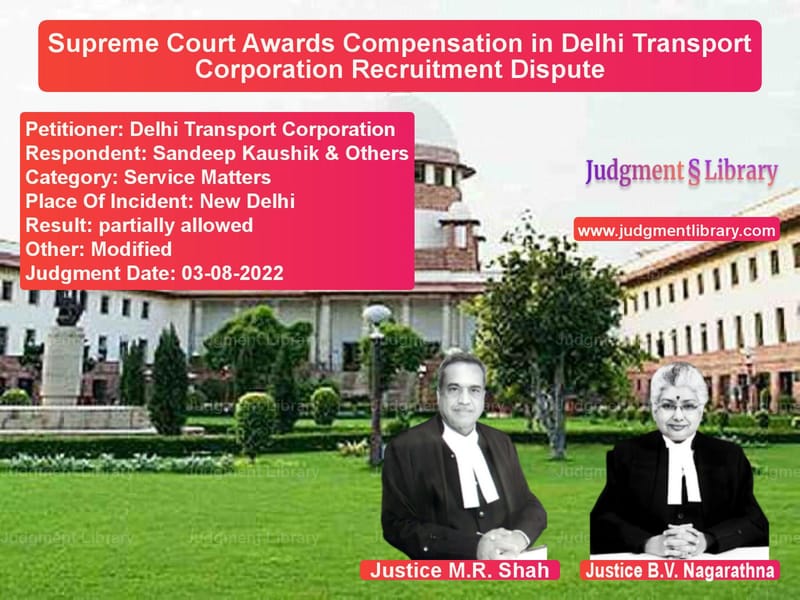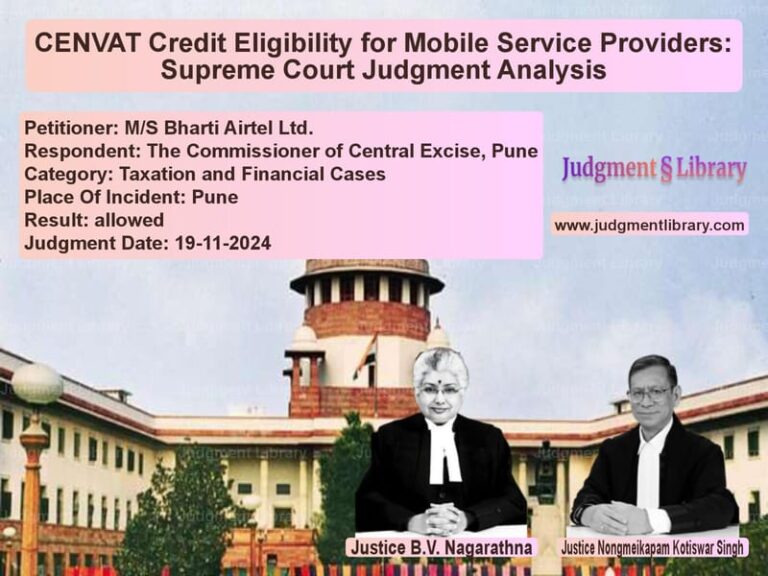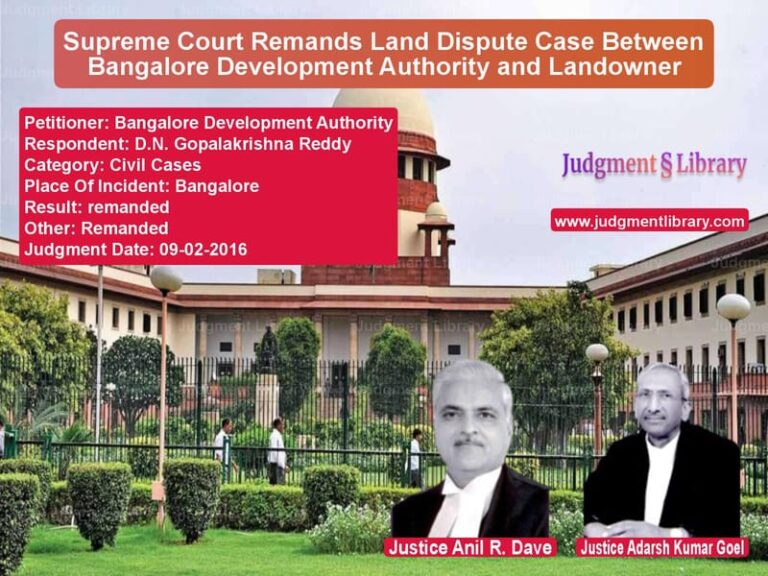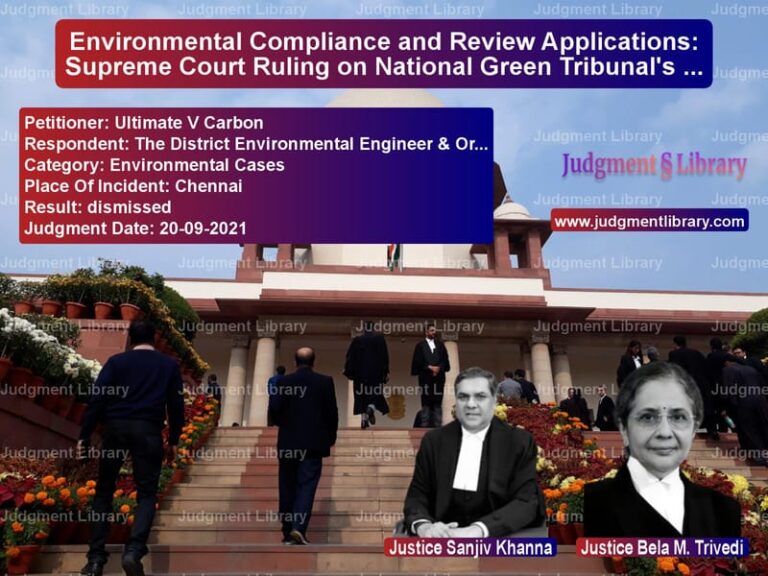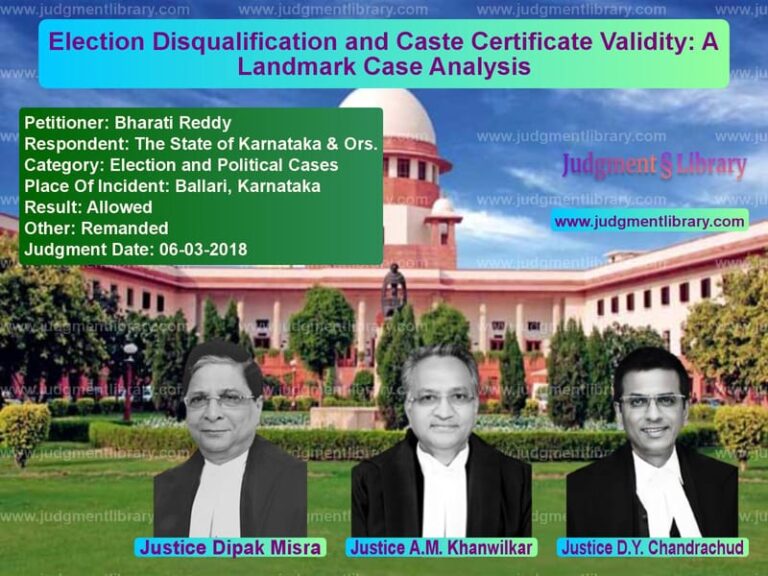Supreme Court Awards Compensation in Delhi Transport Corporation Recruitment Dispute
The Supreme Court of India has ruled on a long-standing dispute between the Delhi Transport Corporation (DTC) and Sandeep Kaushik, a driver candidate who challenged the recruitment process. The Court upheld the High Court’s finding that the selection process was flawed but modified the relief granted. Instead of reinstatement, the Court awarded the petitioner a lump sum compensation.
Background of the Case
The dispute began in 2008 when the DTC initiated recruitment for drivers. Sandeep Kaushik, the petitioner, applied for the position but was not selected. He challenged the recruitment process in the Delhi High Court, alleging that the selection was based solely on viva voce (oral interviews) without proper guidelines.
Read also: https://judgmentlibrary.com/supreme-court-denies-compassionate-appointment-for-bank-employees-son/
The High Court found merit in the petitioner’s claims and declared the recruitment process invalid. It directed DTC to appoint the petitioner with seniority benefits but without back wages.
DTC, dissatisfied with the High Court’s order, appealed to the Supreme Court, arguing that reinstatement was not feasible after 14 years and that no vacant posts were available.
Arguments Before the Supreme Court
Petitioner’s Arguments (Sandeep Kaushik)
- The petitioner contended that the recruitment process was arbitrary and unfair since appointments were made solely based on viva voce marks.
- He argued that he had been denied a fair opportunity and had been fighting the legal battle for over a decade.
- The petitioner sought reinstatement as a driver, as ordered by the High Court.
Respondent’s Arguments (Delhi Transport Corporation)
- The DTC argued that the recruitment process had changed over the years and that reinstating the petitioner after 14 years was not practical.
- It stated that all driver appointments were now made on a contractual basis, and no permanent vacancies were available.
- The DTC pointed out that the petitioner, now aged 49, would have limited years of service left before retirement at 55.
- It also emphasized that a driving test was mandatory for all driver positions, and reinstatement without such a test would be inappropriate.
Supreme Court’s Observations
The Supreme Court acknowledged that the High Court was correct in declaring the recruitment process invalid. However, it noted that reinstatement was not a practical solution.
“Considering the overall facts and circumstances of the case, we are of the opinion that at this stage, the actual appointment of the respondent No.1 – original writ petitioner is not possible.”
The Court emphasized that the recruitment landscape had changed, with driver appointments now being contractual. Additionally, the petitioner’s age and the requirement of a driving test were factors that complicated reinstatement.
“If the respondent No.1 – original writ petitioner is to be appointed now as driver, he will have to clear the driving test to drive the bus on the road.”
Supreme Court’s Verdict
The Supreme Court modified the High Court’s order and awarded compensation instead of reinstatement:
- The petitioner was awarded ₹7.5 lakhs as compensation.
- Interest at 6% per annum was to be paid on this amount from September 2013 until actual payment.
- The compensation was to be paid within eight weeks.
- DTC was allowed to recover the compensation amount from the recruitment body responsible for the flawed selection process.
Impact of the Judgment
This ruling has important implications for employment disputes:
- It confirms that flawed recruitment processes must be corrected but acknowledges practical limitations in reinstatement.
- It reinforces the importance of fairness in government job selections, ensuring that arbitrary selection methods are not upheld.
- It establishes that compensation can be an appropriate alternative when reinstatement is not feasible.
- It provides a precedent for handling long-pending employment disputes where reinstatement is impractical.
By awarding compensation instead of reinstatement, the Supreme Court balanced the petitioner’s rights with the operational realities of DTC, ensuring justice without disrupting the current employment system.
Petitioner Name: Delhi Transport Corporation.Respondent Name: Sandeep Kaushik & Others.Judgment By: Justice M.R. Shah, Justice B.V. Nagarathna.Place Of Incident: New Delhi.Judgment Date: 03-08-2022.
Don’t miss out on the full details! Download the complete judgment in PDF format below and gain valuable insights instantly!
Download Judgment: delhi-transport-corp-vs-sandeep-kaushik-&-ot-supreme-court-of-india-judgment-dated-03-08-2022.pdf
Directly Download Judgment: Directly download this Judgment
See all petitions in Employment Disputes
See all petitions in Recruitment Policies
See all petitions in Judgment by Mukeshkumar Rasikbhai Shah
See all petitions in Judgment by B.V. Nagarathna
See all petitions in partially allowed
See all petitions in Modified
See all petitions in supreme court of India judgments August 2022
See all petitions in 2022 judgments
See all posts in Service Matters Category
See all allowed petitions in Service Matters Category
See all Dismissed petitions in Service Matters Category
See all partially allowed petitions in Service Matters Category

